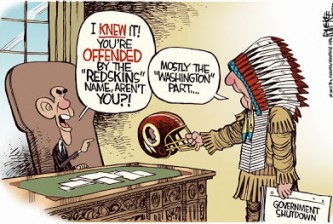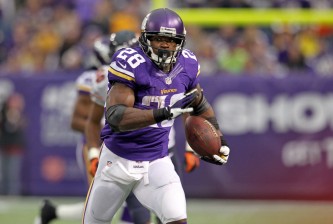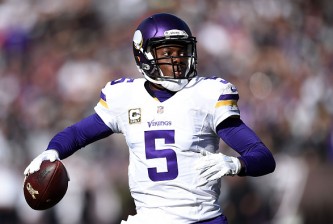
The New York Giants have won Super Bowl XLVI. Or, you might say, the New England Patriots lost it. While every losing team comes off a game thinking about missed plays that might have made a difference, the well-coached Patriots are usually a team without regrets. Not so this week, not for Wes Welker, whose key fourth-quarter drop changed the complexion of the game and opened the door for Eli Manning’s comeback heroics.
“It’s right there,” said a reportedly distraught Welker in the locker room after the game. “Hit me right in the hands. It’s a play I never drop. I let the team down.”
There were other culprits on both team, other plays that could have or should have been made that might have affected the outcome. But none was bigger than Welker’s drop.
To rewind: the Patriots held a tenuous 17-15 lead, built on the team’s undrafted stars – Welker, Danny Woodhead, and Benjarvus Green-Ellis. Their defense had just forced the Giants to punt, and were pinned deep in their own territory. But Tom Brady had his offense clicking down the field, chewing up yardage and the clock in equal measures. Each first down closer to the end zone and a clinching score and each minute taken off the clock were steadily wearing away the Giants’ chances of completing a comeback win.
According to Advanced NFL Stats, the Pats’ chances of winning stood at 80% when Brady dropped back from the NYG 44 on a second and 11 play, spun away from a Giants pass rush, and found Welker running uncovered down the numbers. Brady fired the ball downfield, one of the few downfield throws on the day by either QB, and it drifted just a bit inside. Welker adjusted and got himself turned around and his hands on the ball as he began falling backwards… and dropped it.
With a catch, it would have been at least a 20-yard gain and set the Patriots up on the doorstep of a game-icing touchdown. With the drop, Brady faced a 3rd and 11, a difficult down made more challenging by a Giants pass rush that had found its second wind. Giants safety Corey Webster separated Deion Branch from Brady’s desperate heave on the very next play, dropping the Patriots’ game winning percentage to a mere 63% and forcing a punt. With that, the door was standing wide open.
In the booth, Cris Collinsworth said “Wes Welker catches that ball… 100 times out of 100.” It was a stunning failure for one of the most sure-handed receivers in football, and Brady’s most trusted asset. However, it wasn’t the only missed play that changed the game. Four more would play a critical part in the game’s final outcome.
1. Ahmad Bradshaw can’t stop himself from scoring.

The endgame between Tom Coughlin and Bill Belichick turned into a fascinating chess match after the Giants got into scoring position, and worked the clock down to the two-minute warning. Down only two points and with Belichick down a timeout on a futile challenge of Mario Manningham’s catch, Coughlin could have bled the entire clock dry and trusted the leg of Lawrence Tynes with a game-cinching chip shot field goal.
Indeed, that appeared to be the plan. And Advanced NFL Stats gave the Giants a 93% chance of winning the game with the ball on the NE 11 and the clocking ticking away.
Conversely, with more than a minute left, Belichick chose a risky move – open the gates and let the Giants score six now, trusting his prolific offense to get those points back and secure the win. The Patriots defense did just that, as Ahmad Bradshaw hit the line at full speed and found unexpected daylight in front of him.
The instinct has to be overpowering as a runner, when you see the end zone in front of you with no one in the way. Your animal brain says “Keep running! Score!” even if game logic dictates a kneel-down at the one. Bradshaw’s brain stopped his legs just in time, but Newton’s laws of dynamics took over from there.
You know the one: “An object in motion tends to stay in motion.”
Bradshaw tumbled backwards into the end zone with the go-ahead points, perhaps the only time in Super Bowl history when a team retook the lead late in the fourth quarter and felt they had made a mistake.
With the ball back in Brady’s hands and more than 60 ticks on the clock, the Giants’ win percentage dropped down to 85%. A strong chance, but ironically not as strong as it would have been had Bradshaw been able to keep himself from giving his team the lead.
2. Deion Branch and Aaron Hernandez drop passes on the Pats’ last drive
For newly rehired offensive coordinator Josh McDaniels, the 2011 season ended like it began – with the best-drawn plays sabotaged by dropped passes. His young pupil Sam Bradford had an astounding eight of his passes flat-out dropped in the Rams’ deflating season-opening loss to the much-heralded Eagles. And in the waning moments of the season’s last game, his all-world quarterback Tom Brady fell victim to the same ignominious fate.
Whatever chances the Patriots had of rekindling their miracle minute from Super Bowl XXXVI depended on Brady’s lightning quick passes finding their mark, and his receivers getting out of bounds. Oh, and that part that no one ever thinks to include in their coaching plans – catching the ball.
For a while, the Patriots receivers could do no wrong in that department. Brady set a new Super Bowl record with 16 consecutive completions while building a formidable 17-9 lead. But Welker’s critical drop introduced something contagious among his receiving crew – panic.
There’s no better word for it, that physiological fear factor that strikes you when you have the split-second opportunity to do something great or screw it up royally trying. The panic hit Branch and Hernandez in the hands just before Brady’s passes did, and each receiver jerked away a split-second soon.
After those two drops, the Patriots’ chances of winning the game fell from 15% to a mere 3% – from a gambler’s hunch bet to a hopeless prayer.
3. Tom Brady can’t find the neighborhood, is called for intentional grounding.
The bizarre play that opened the game’s scoring also changed its endgame. We’ve seen Tom Brady and little-known referee’s decisions interact in huge games before (cough, cough… “tuck rule”) but we’ve rarely seen him be the victim of those decisions. In this case, though, not knowing the rulebook cost his team two points and perhaps more than that.
Brady was dropping back to pass on his team’s first play of its first possession, drifting back into the end zone from his own 6. He cared not about where his feet were, though, as he scanned the field for one of his receivers to come open. Suddenly, though, Justin Tuck broke loose and came hurtling toward him, and Brady heaved the ball down the field.
We’ve seen plenty of intentional grounding calls, but rarely one that came on a deep pass down the middle. However, these aren’t the Randy Moss Patriots, and no one was running anything resembling a deep route. The zone was free of jerseys for a good twenty yards … a long way away from any receiver’s “neighborhood,” the foundation of the refs judgement calls on these plays.
The play put two points on the board, took the ball away from the Pats, and gave it back to the Giants who promptly marched down the field for seven more. The touchdown drive was one thing. But the two point cushion would dramatically change the endgame.
If Coughlin is down 17-13 late in the fourth quarter, the dynamics of the chess match between coaches is dramatically different. There’s no opportunity to bleed the clock and give the game to Lawrence Tynes. And no incentive for Belichick to open the gates and let Bradshaw score. Even if the New Yorkers do break through for seven in this scenario, Brady would get the ball back down just a field goal, making for a much shorter game-ending drive.
4. Rob Ninkovich gets called offside in the fourth quarter.
A lot happened after this play that ended up affecting the game more, but it still stands as a little mistake that was symptomatic of an error-prone evening from the New Englanders in this edition of the Super Bowl. And it did end up changing the dynamic of the drives to come.
The Patriots had the Giants pinned deep in their own territory, and very nearly came away with a fumble recovery off an Ahmad Bradshaw carry on second down. Facing long odds and a 3rd and 7 from their own 11 yard line, the Giants called timeout. Apparently, they spent that time rehearsing an elaborate snap count. Eli gave a hard count, a double-stomp of his foot, and then froze for a crucial half second as Ninkovich – the Pats’ former long-snapper turned leading pass rusher – took the bait and came crashing around the pile just before the snap of the ball.
It was an easy yellow flag for the refs to throw, and turned a difficult 3rd and 7 into an easy 3rd and 2. Manning caught fire from that point, connecting on his next five passes to drive to the New England 43 yard line before stalling and punting away.
While the defense held, the Patriots had lost fifty yards of field position, yards that would become precious as Brady prepared to drive his team for a game-clinching score.
A drive, a game, and a season, that would effectively end on Welker’s dropped pass.






















